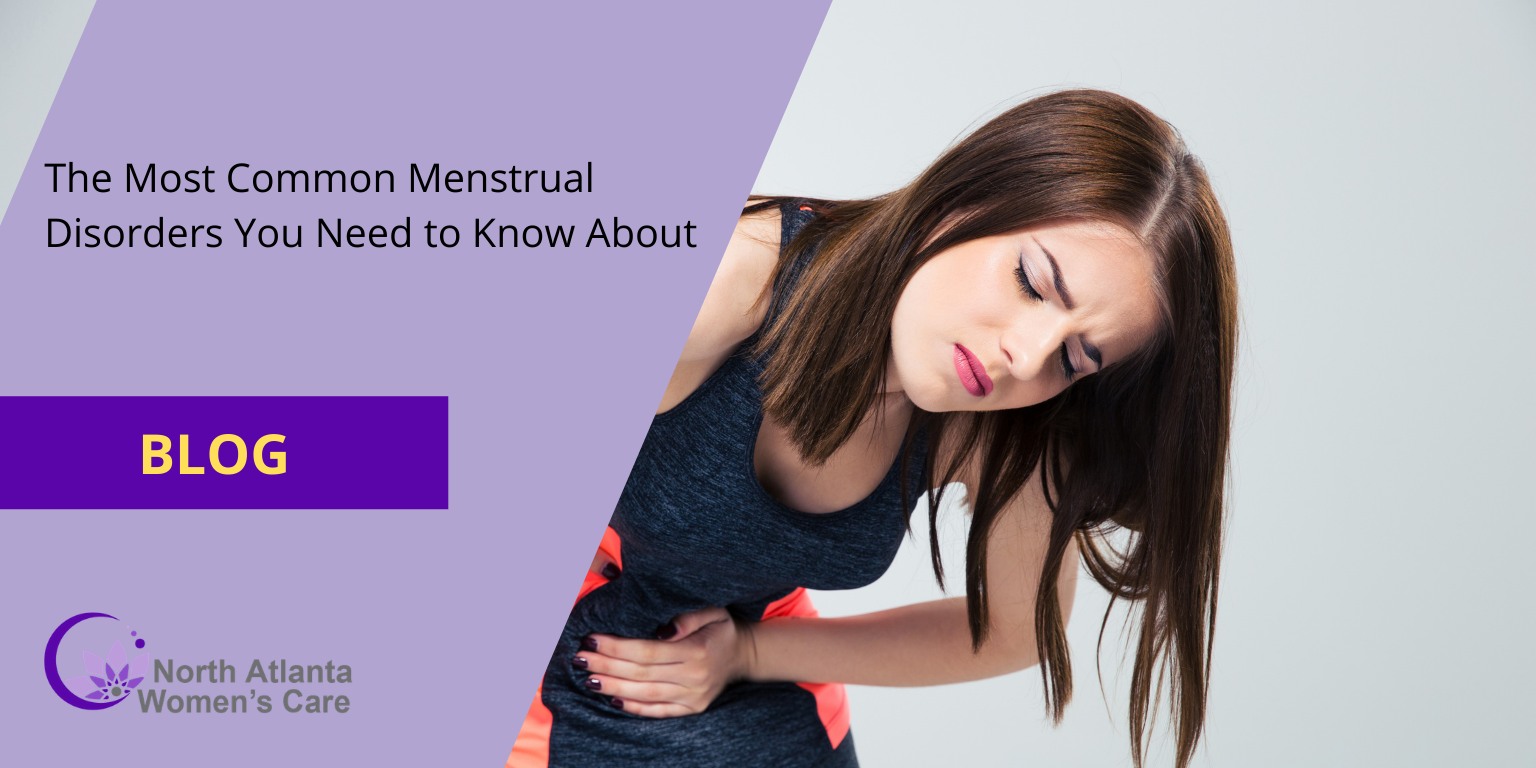The Most Common Menstrual Disorders You Need to Know About

Usually, women hesitate or feel uneasy to talk about menstruation. They may not always know what is normal and what is abnormal concerning their periods. Many women experience several types of menstrual disorders before and during menstruation, including missed periods, heavy bleeding, and unmanageable mood swings. Being aware of these conditions will help you identify and take treatment for such conditions.
Here are some common menstrual disorders:
1. Heavy Menstrual Bleeding (Menorrhagia)
20% of women experience heavy bleeding that disrupts their daily activities. Heavy menstrual bleeding is 10 to 25 times more severe than normal periods. This can be expected when you start menstruating or in your late 40s or 50s when you get closer to menopause.
Causes
- Hormonal imbalances
- Structural abnormalities in the uterus, such as fibroids or polyps
- Thyroid problems
- Blood clotting disorders
- Complications from IUD (intrauterine device)
- Liver or kidney disease
- Infections
- Precancerous conditions of the uterine lining cells
- Miscarriage
- Leukemia
- Certain medications
Symptoms
- The menstrual period lasts more than seven days
- Spotting or bleeding between menstrual periods
- Spotting or bleeding during pregnancy
2. Painful Menstruation (Dysmenorrhea)
Dysmenorrhea is characterized by painful periods and severe menstrual cramps. These cramps cause uterine contractions that result from hormone-like substances called prostaglandins. The cause depends on whether the condition is primary or secondary. Primary dysmenorrhea includes common menstrual cramps. However, secondary dysmenorrhea includes mild to severe pain caused by a disorder in the reproductive organs such as adenomyosis, endometriosis, or fibroids.
Causes
- Pelvic inflammatory disease
- Infection, tumors, or polyps in the pelvic cavity
- Abnormal pregnancy (ectopic or miscarriage)
The risk of dysmenorrhea increases in women who:
- Smoke
- Consume excessive alcohol
- Are overweight
- Begun menstruating before turning 11
3. No Menstrual Bleeding (Amenorrhea)
The absence of menstrual periods is amenorrhea. Amenorrhea includes two types:
Causes
- Ovulation abnormality
- Thyroid disorder
- Excessive or strenuous exercise
- Obesity or low body weight
- Eating disorder
- A birth defect or anatomical abnormality
- A problem in the endocrine system
Symptoms
- Hair loss
- Milky nipple discharge
- Vision changes
- Headache
- Additional facial hair
4. Light or Irregular Menstruation (Oligomenorrhea)
Oligomenorrhea occurs when the length of the menstrual cycle is over 35 days, a woman has fewer than nine periods in a year, or a woman bleeds infrequently or abnormally light.
Causes
- Hormonal changes
- PCOS
- Extreme weight gain or weight loss
- Eating disorders
- Emotional stress
- Strenuous exercise
Symptoms
- A menstrual cycle that lasts less than 25 days or more than 35 days
- Changes in the blood flow
- Blood clots
5. Premenstrual Syndrome (PMS)
PMS is a series of symptoms impacting a woman’s emotional health, physical health, and behavior between ovulation and a period. These symptoms begin before 5 to 11 days of menstruation and resolve once menstruation begins.
Causes
The causes of PMS are still unclear, but hormonal fluctuations and chemical changes in the brain can impact the condition.
Symptoms
- Psychological symptoms (depression, irritability, anxiety)
- Muscle spasms
- Bloating
- Swollen, painful breasts
- Constipation
- Fatigue
- Infections
- Vision problems
- Heart palpitations
- Acne
- Fluid retention
- Vertigo
- Diminished libido
- Food cravings
6. Premenstrual Dysphoric Disorder (PMDD)
PMDD is a severe form of PMS that significantly impacts a woman’s daily life. Doctors equate the difference between PMS and PMDD to the difference between a headache and a migraine. Hormonal changes that occur during your menstrual cycle can be a major cause of PMDD.
Symptoms
- Persistent irritability or anger
- Feeling uncontrolled
- Tension or anxiety
- Sadness or despair
- Insomnia
- Panic attacks
- Abdominal cramps
- Joint or muscle pain
- Bloating
- Lack of interest
- Breast tenderness
- Headaches
- Mood swings
- Trouble concentrating
- Food cravings or binge eating
- Tiredness
If you experience any of these symptoms or suspect that you have a menstruation cycle disorder, contact North Atlanta Women's Care. We have highly-experienced gynecologists to treat your menstrual cycle problems.
Comments are closed

